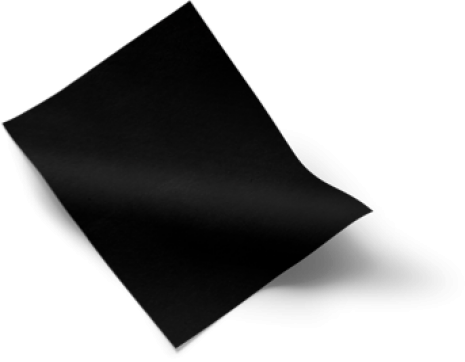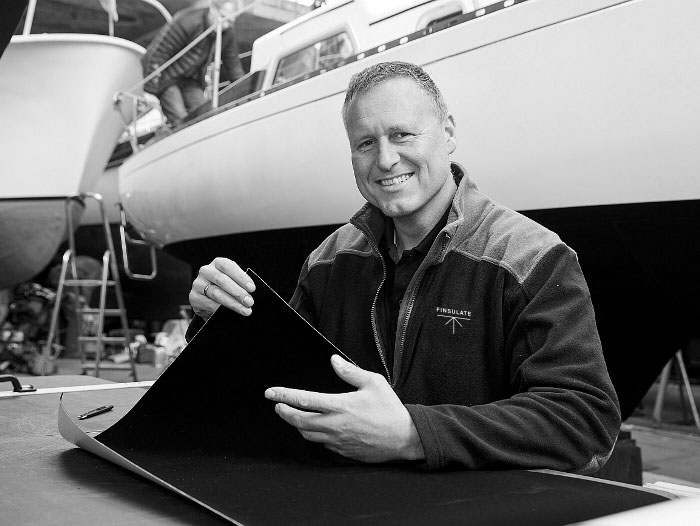
The yachting market is turning, with sustainability on everyone’s agenda, especially in hull maintenance. As consumers, companies, and regulators demand more environmentally friendly practices, the industry has an opportunity to adopt sustainable solutions that reduce harm to marine ecosystems while enhancing boating experiences.
The future of sustainable hull maintenance lies in collaboration, innovation, and a shared commitment to protecting our oceans. Through continued research, investment, and consumer education, the leisure marine market can become a model for sustainable growth in the face of environmental challenges.
The yachting industry comprises a range of products and services related to recreational boating, including yachts, sailboats, motorboats, and personal watercraft. Over recent years, the market has grown steadily, driven by a heightened interest in outdoor recreational activities and the growing network of marinas and facilities. At the same time, sustainability has become a crucial aspect of industry growth.
Yachting and sustainability
More 100% electric boats are coming to market, and yacht owners are showing an increasingly sustainable mindset. Environmental pressure and regulatory frameworks have also started to significantly influence the choices of manufacturers, operators, and boat owners.
Within this context, hull maintenance, a critical area of boat maintenance, is becoming increasingly a focus for sustainability efforts. Traditional hull maintenance practices involve toxic chemicals and antifouling coatings that harm marine life.
Alternatives are on the rise, with a particular emphasis on sustainable solutions for hull maintenance.
Global Market Size and Growth in Yachting
The leisure marine industry has grown considerably in recent years. ICOMIA reports show that the global market for recreational boats alone is valued at approximately €35 billion, with projections indicating steady growth over the next decade.
Key regions driving this growth include North America, Europe, and Asia-Pacific, each with unique market drivers and challenges.
Growth in the leisure marine industry can be attributed to:
• Increased disposable income and a growing preference for outdoor activities.
• Greater accessibility to boating, with affordable options and more boat-sharing services.
• Innovation in marine technology, providing enhanced performance and reduced environmental impact.
• While these factors drive the industry, they also increase the focus on sustainability. As boating becomes more widespread, the environmental impact of maintenance and hull upkeep grows, necessitating more eco-friendly approaches.
Yachting Key Market Segments
The leisure marine industry is highly segmented, with each category facing distinct sustainability challenges. The primary categories include:
Yachts
The most extensive and resource-intensive boats comprise a significant part of the leisure marine market. They require extensive hull maintenance, mainly as they are typically used in warm saltwater environments and idle most of the time.
Non-toxic, eco-friendly antifouling for yachts
Motorboats
Including various sizes, from small recreational boats to large motor yachts. Due to their speed and versatility, motorboats see high fuel usage and frequent hull cleaning and antifouling requirements.
Non-toxic, eco-friendly antifouling for motorboats
Sailing Boats
Generally, sailing boats have a passionate user base that prioritises sustainability. As a result, the segment has a strong demand for eco-friendly hull coatings and maintenance solutions.
Non-toxic, eco-friendly antifouling for sailing boats

Regional Differences in Yachting
The environmental impact of leisure boating varies by region due to differing regulatory standards and ecosystem sensitivity. Here’s a brief overview of key areas:
North America
North America remains a robust market for recreational boating, with the United States leading in boat ownership. However, environmental regulations, particularly in states like California and Washington, have pushed for greener hull maintenance solutions.
North American boaters are increasingly adopting environmentally friendly hull coatings, such as biocide-free antifouling paints and non-toxic hull wraps. Waterless hull cleaning services are becoming more popular, especially in ecologically sensitive areas.
Europe
Europe is known for its strong environmental policies and is home to several eco-conscious boating communities, especially in Mediterranean regions. In northern areas like Sweden, regulations are pressing for alternatives.
The European yachting market highly adopts sustainable hull maintenance solutions, including long-lasting, non-toxic coatings and innovative technologies like ultrasonic antifouling systems and antifouling wraps.
Asia-Pacific
The leisure marine industry in Asia-Pacific is expanding rapidly, with growing interest from China, Australia, and Southeast Asia. The region has diverse aquatic ecosystems, which require careful management.
Australia, in particular, has strict marine conservation laws, spurring the demand for sustainable hull maintenance practices. In Asia, there is growing awareness of eco-friendly boating practices, leading to an increase in green hull maintenance products.
Sustainability Challenges in Hull Maintenance
The yachting industry faces several sustainability challenges specific to hull maintenance:
Antifouling biocides
Antifouling paints release biocides to prevent biofouling. However, these chemicals leach into water bodies, harming marine ecosystems.
Invasive Species
Biofouling can spread invasive species across regions. Hull cleaning practices must be managed carefully to avoid these organisms being transported from one body of water to another.
Microplastics
Hull maintenance activities, particularly sanding, blasting, or reapplying antifouling coatings, can have a high environmental impact if not managed sustainably. Microplastics from paints (for example, from sanding activities or depletion during use) constitute a significant source of microplastics. Over 50% of microplastic pollution in the oceans is paint-related.
Innovations and Trends in Sustainable Hull Maintenance
Responding to these challenges, the yachting industry has seen several innovations in sustainable hull maintenance:
Biocide-Free Antifouling Coatings
Several companies now offer biocide-free coatings that prevent fouling through non-toxic means.
A popular one is replacing copper with zinc. Officially, zinc is not a biocide, but it is still a heavy metal. Or as Science Direct formulates: ‘zinc is a substance of concern’.
Foul-Release Coatings
Foul-release coatings do not kill marine organisms; instead, they make it difficult for organisms to attach to the hull. These coatings are smoother and easier to clean, making them a popular choice for eco-conscious boat owners. They require periodic cleaning, yet they help reduce the environmental impact by avoiding harmful chemicals. Concern is rising about the leaching of compounds like organotin, PFAS, and silicone oil, and the lifespan of some of these is limited and recycling will be a major concern.
Ultrasonic Antifouling
Ultrasonic antifouling systems use sound waves to prevent marine growth on hulls. Due to their non-invasive nature, these systems are environmentally friendly and increasingly popular. Ultrasonic antifouling is particularly suitable for smaller boats and personal watercraft. So far, they are mainly used in conjunction with toxic antifouling paints. Stand-alone performance needs to be proven.
Hull Wrapping Solutions
Some companies offer hull wraps as an alternative to traditional coatings. These thin layers of non-toxic material are applied to the hull’s surface, creating a barrier that prevents fouling. These durable wraps last up to 10 years, making them a cost-effective and eco-friendly alternative. Finsulate is the best example from a longevity point of view (>10 years).
In-water Hull Cleaning
Specialised ROVs are being developed to make in-water cleaning more accessible on a broader variety of environments. These in-water devices are run by an operator that can manoeuvre a device with brushes over the hull. It is suitable for early fouling stages, but more severe growth is difficult to remove.
Dock-Based Cleaning Systems (boat wash)
Floating dock-based cleaning systems are emerging as a popular solution in high-traffic marinas. These systems allow boat owners to clean hulls regularly without lifting the vessel. They help remove biofouling early, reducing the need for harsh chemicals. Especially in Scandinavia, these dock-based cleaning systems are gaining in popularity.

Market Opportunities in Sustainable Hull Maintenance
The shift toward sustainable practices is changing the marina business. Dirty sanding and scraping work are replaced by cleaner work. Other opportunities are arising:
Expanding Green Products Portfolio
Companies in the leisure marine market can capitalise on the demand for sustainable hull maintenance solutions by expanding their range of eco-friendly products. As many of these need professional applications, the DIY market will diminish, and the professional market will grow. Advanced cleaning tools are also a growing market.
Increased Demand for Maintenance Services
As environmental awareness grows, so does the demand for specialised maintenance services. Marinas and service providers offering sustainable hull cleaning and coating services will likely see increased business.
Partnerships with Marinas and Ports
Companies producing sustainable maintenance solutions can partner with marinas and ports to offer convenient access to eco-friendly services. Marinas that promote green maintenance practices can attract more environmentally conscious boaters.
Legislative Drivers for Sustainable Products
Environmental regulations are pushing the industry toward sustainable solutions. For example, several regions have banned biocidal paints, creating a market opportunity for eco-friendly alternatives. Companies that invest in non-toxic solutions stand to benefit as more stringent regulations come into force.
The Future of Sustainability in Leisure Marine Hull Maintenance
As environmental sustainability becomes more pressing, the leisure marine industry will continue innovating hull maintenance solutions. Some key trends to watch for in the coming years include:
Increased Adoption of Biocide-Free Solutions
Regulatory pressure is likely to drive the adoption of non-toxic antifouling products. Research into alternative antifouling technologies will likely accelerate, leading to more effective, eco-friendly solutions.
Advancements in Technology
Innovations such as autonomous hull cleaning robots and AI-driven monitoring systems are on the horizon, offering new ways to maintain hulls without impacting the environment.
Rise of Circular Economy Models
Companies may explore circular economy practices, such as offering hull maintenance services on a subscription basis, reducing waste, and maximising resource efficiency.
Focus on Carbon-Neutral Products
Manufacturers could prioritise the shift to carbon-neutral boating, with hull coatings and maintenance services contributing to reducing a boat’s overall carbon footprint.
If you’d like to know how we can help you with an eco-friendly, sustainable antifouling solution, please feel free to contact us here.



